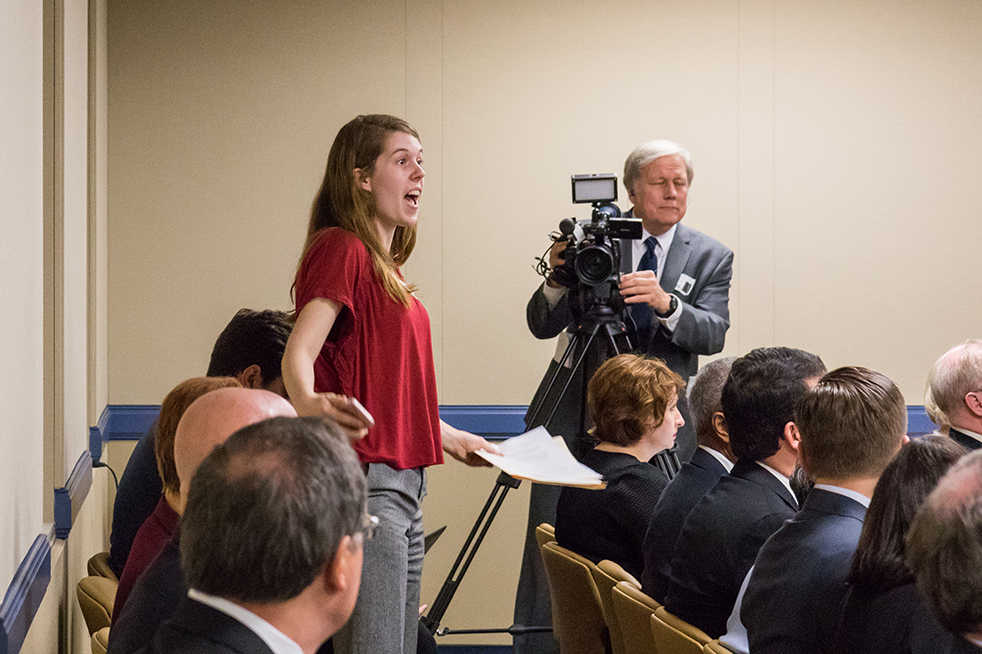The Board of Regents of the University System of Georgia (USG) voted March 9 to approve and implement a set of two system-wide policies to address student conduct.
The move comes as part of an ongoing effort by the USG Campus Safety Committee to launch consistent campus safety policies and procedures across its 29 schools.
Two separate policies were approved, one for sexual misconduct and one for non-sexual general misconduct. The former is intended to replace each institution’s existing policies for dealing with sexual misconduct.
In contrast to Tech’s current policies, the new system will require that cases be handled by Title IX coordinators and investigators separate from other student conduct oversight; and, in a further departure, hearings will be conducted in cases where informal resolutions are not pursued.
In said hearings, both the complainant and respondent will present witnesses and evidence to a panel comprised of three or more members depending on the possible sanctions’ severity.
Students and investigators may not serve on the panel, and involved parties may request to testify from separate rooms for “special need or exigent circumstances.”
The latter policy addressing non-sexual misconduct is written with the intention of incorporation with existing policies. It will, in theory, necessitate few changes to Tech’s current practices. Both new policies are unified by a number of “key provisions” which the USG has identified as critical additions.
Each USG institution must provide individualized training to investigators and conduct panels and must ensure that investigators themselves are not training panelists to avoid bias.
Respondents must receive written notices of possible charges; and, in addition, both sides of a case must have the rights to notify investigators of witnesses and evidence as well as respond to the final investigative report in writing.
All parties, according to the new policies, are permitted to have an advisor or attorney present during the process. These figures may provide guidance and active assistance, but may not participate directly in hearings.
The new policies reiterate the standard of preponderance of evidence, but indicate that “substantial” evidence must be presented in order to suspend or expel a respondent.
Finally, the new policies establish the right of parties to challenge panel members, investigators and administrators on the basis of bias.
Such challenges must be reviewed by a neutral third party provided by the institution.
Though approved this week, the new policies have not technically been implemented. Each USG institution must revise their Codes of Conduct to comply with the new guidelines by April 22, and the changes will take effect July 1 of this year. The policies were distributed to institutions for input and alterations prior to the Board of Regents meeting.
Both were passed in the Organization & Law Committee and by the greater Board of Regents without significant alterations from the final drafts.
The Board of Regents meeting on March 9 was attended by several student protesters who wore red in solidarity with sexual assault victims. Among those present at the meeting were Neeki Memarzadeh, second-year INTA; Christopher Polackm second-year CS; Elizabeth Warden, fourth-year HTS; and Thomas Koelle,third-year MTH.
Kate Napier, third-year PHYS, presented a case against the new sexual misconduct policy during the Organization & Law Committee’s breakout session. According to Napier, the regulations unfairly favor respondents, and invite “victim shaming and blaming” as a result of not consulting with students or advocates for victims.
“I ask myself,” said Napier, “how can a Board composed of 89 percent men ever really understand what it is like to life with the reality that you are vulnerable to sexual assault?”
The policies were approved unanimously in the Committee’s breakout session. Napier and others were vocal during the Committee’s report before the Board.
“You don’t respect the opinions of students, you didn’t give us any say,” Napier shouted during the report. “There are so many students who are concerned with this policy, and you gave us five minutes. You’ve given Earl Ehrhart hours to speak about this, and he has bullied you beyond belief … We will not tolerate this.”
“This Board takes the issue of sexual misconduct very, very seriously,” said Kessel Stelling, Jr., the Board’s chair, in response. “I will ask members of the audience to respect the rules of the Board. We try to be fair.”
Following the exchange, the Board proceeded to approve the new policies without dissent. The protestors met the vote with boos before immediately leaving the meeting.
